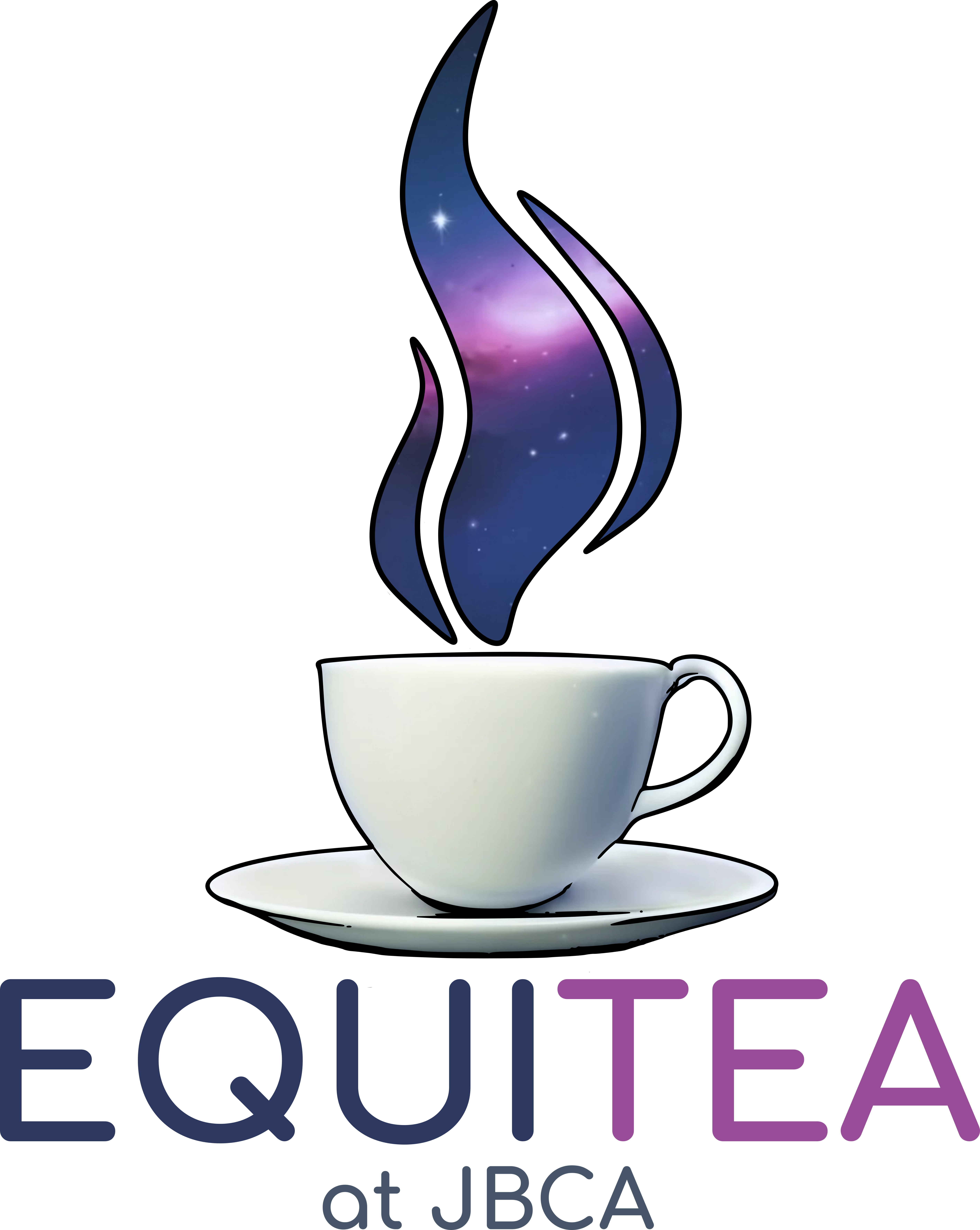About Us
EquiTea is our monthly forum within JBCA/Physics & Astronomy to discuss EDI topics related to physics and astronomy. The EquiTea meetings are open to everyone, students and staff, regardless of background. The aim of these meetings is to encourage an informal space where people feel comfortable to ask questions and learn new perspectives.
We hope you will join us every first Thursday of every month at 11:00 in the Lovell room at Alan Turing Building to engage with eminent speakers talk about their varied experiences followed by a lively discussion.

The EquiTea Committee
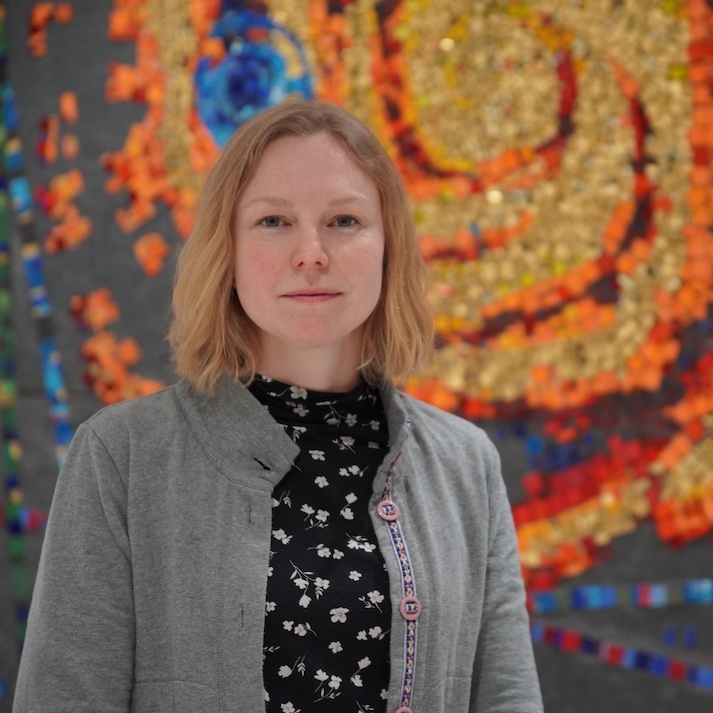
Dr. Rebecca Bowler
(she/her)
Faculty Lead
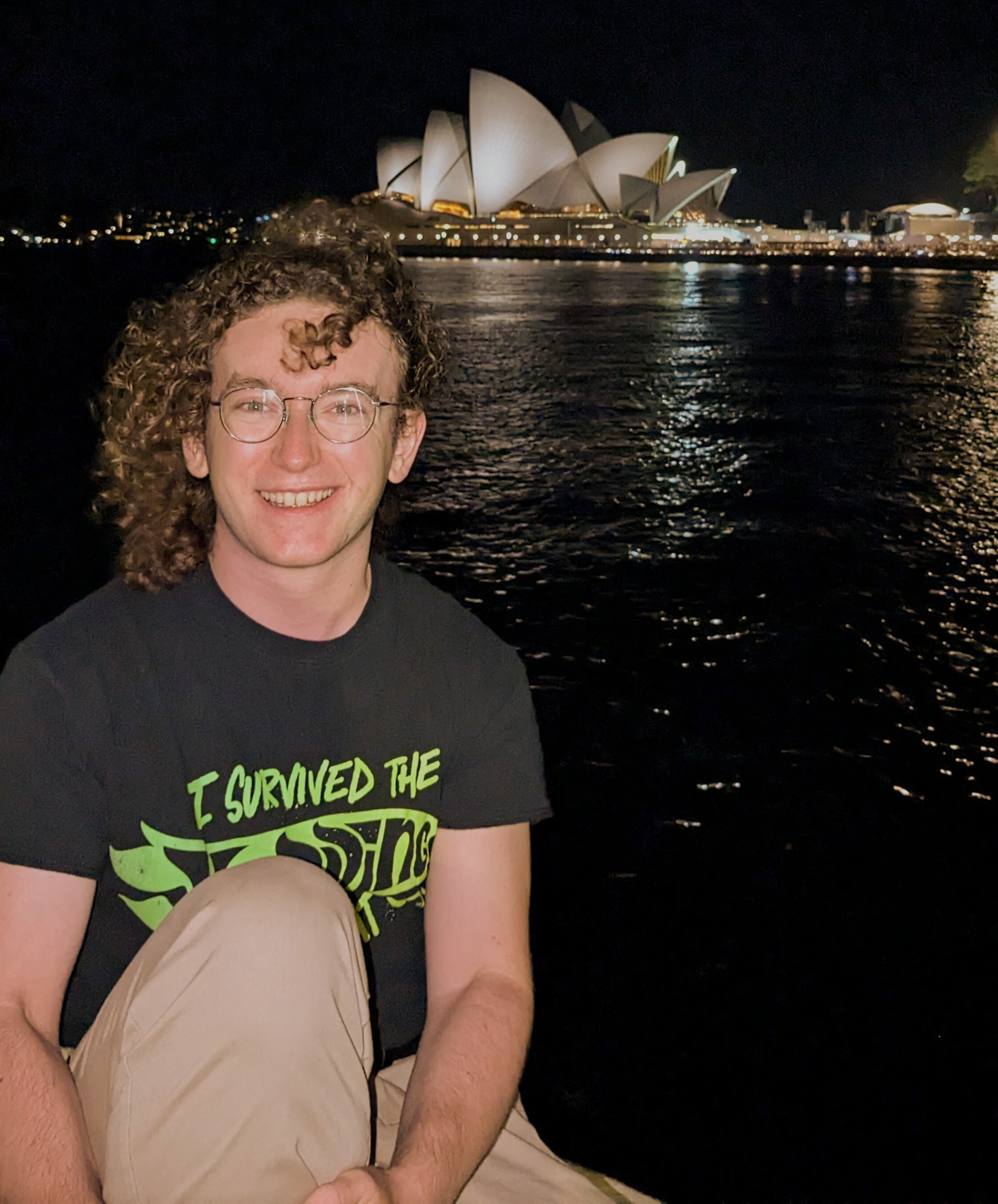
Alec Csukai
(he/him)
Student Lead
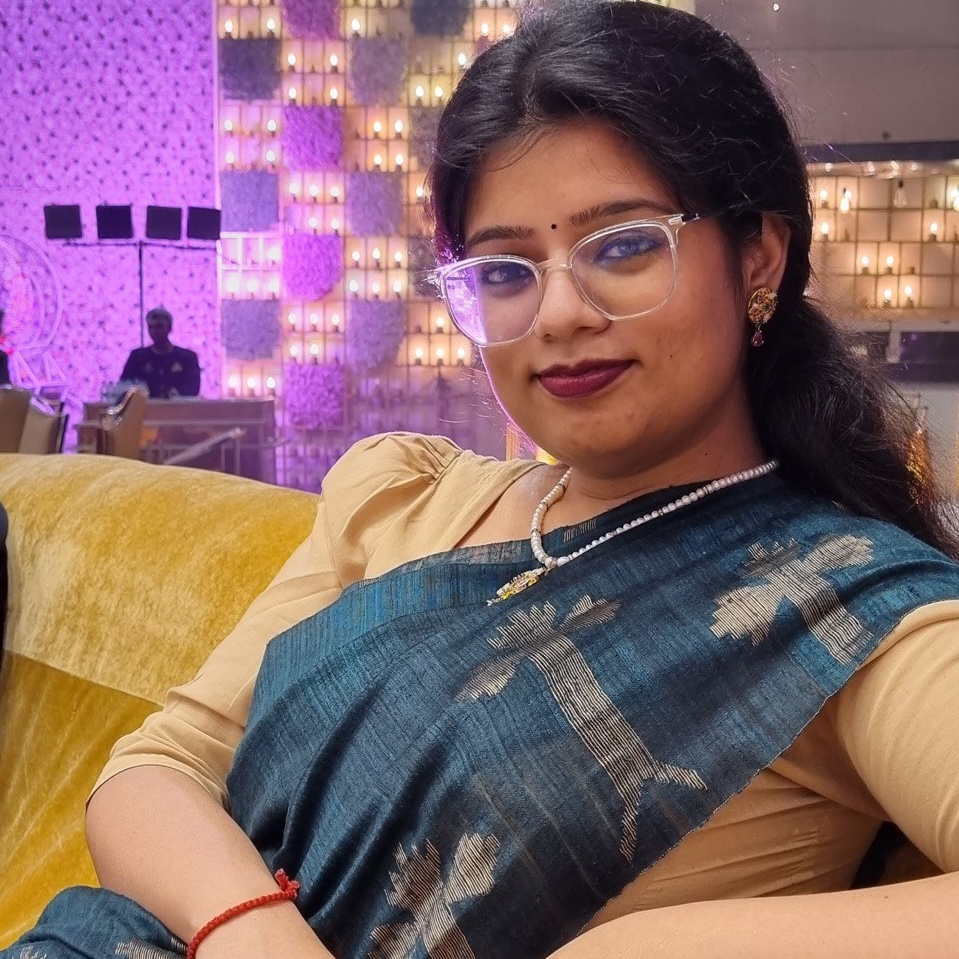
Sohini Dutta
(she/her)
Member/Web Manager
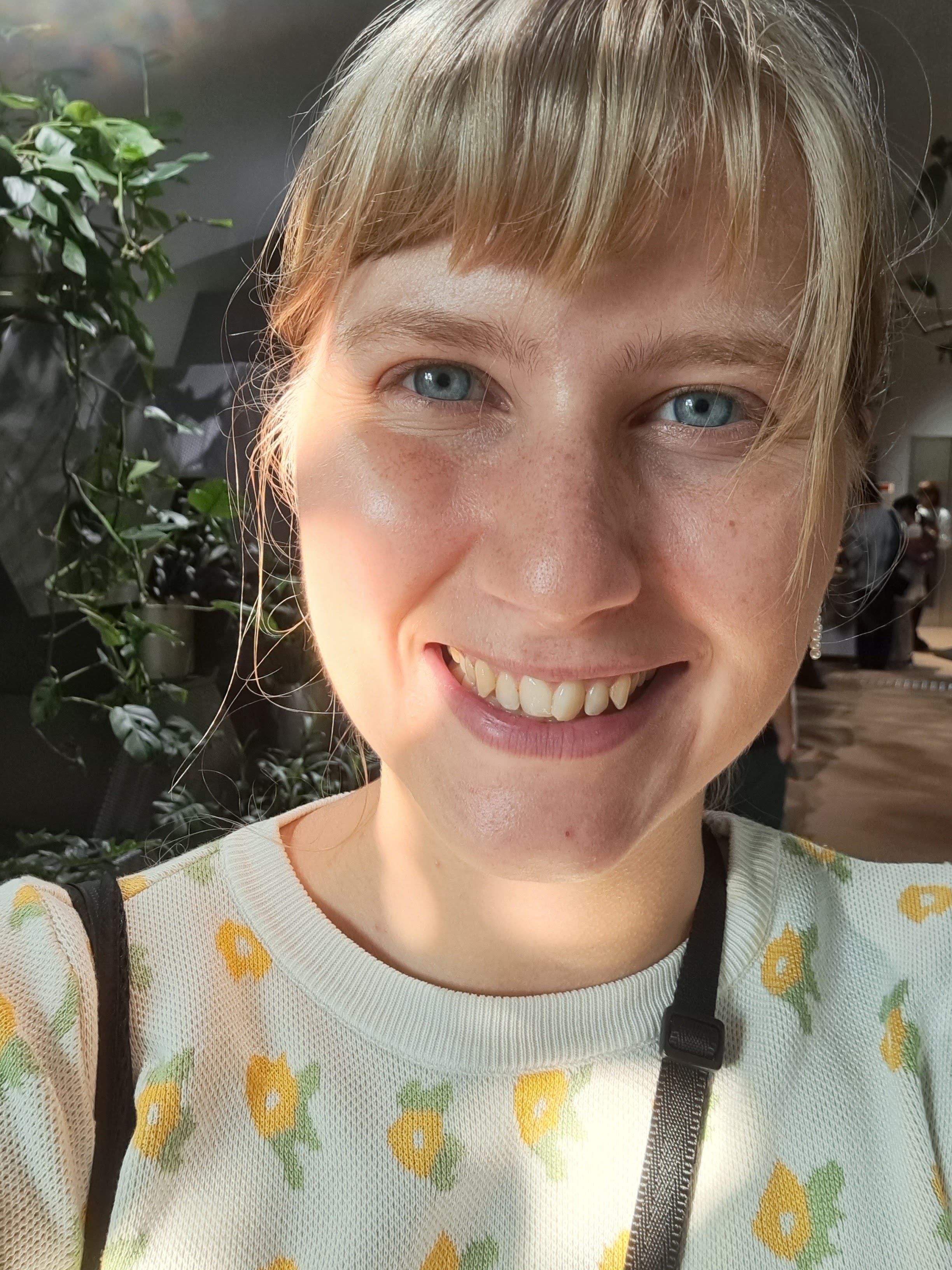
Dr. Katrine Glasscock
(she/her)
Member
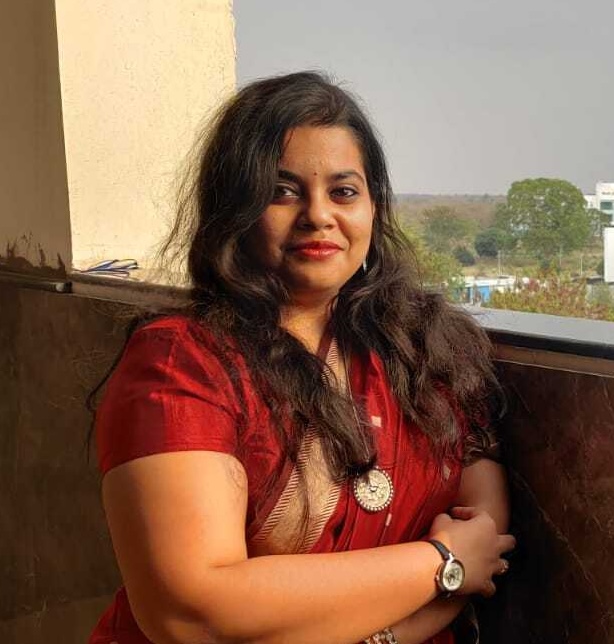
Dr. Aishrila Mazumdar
(she/her)
Member
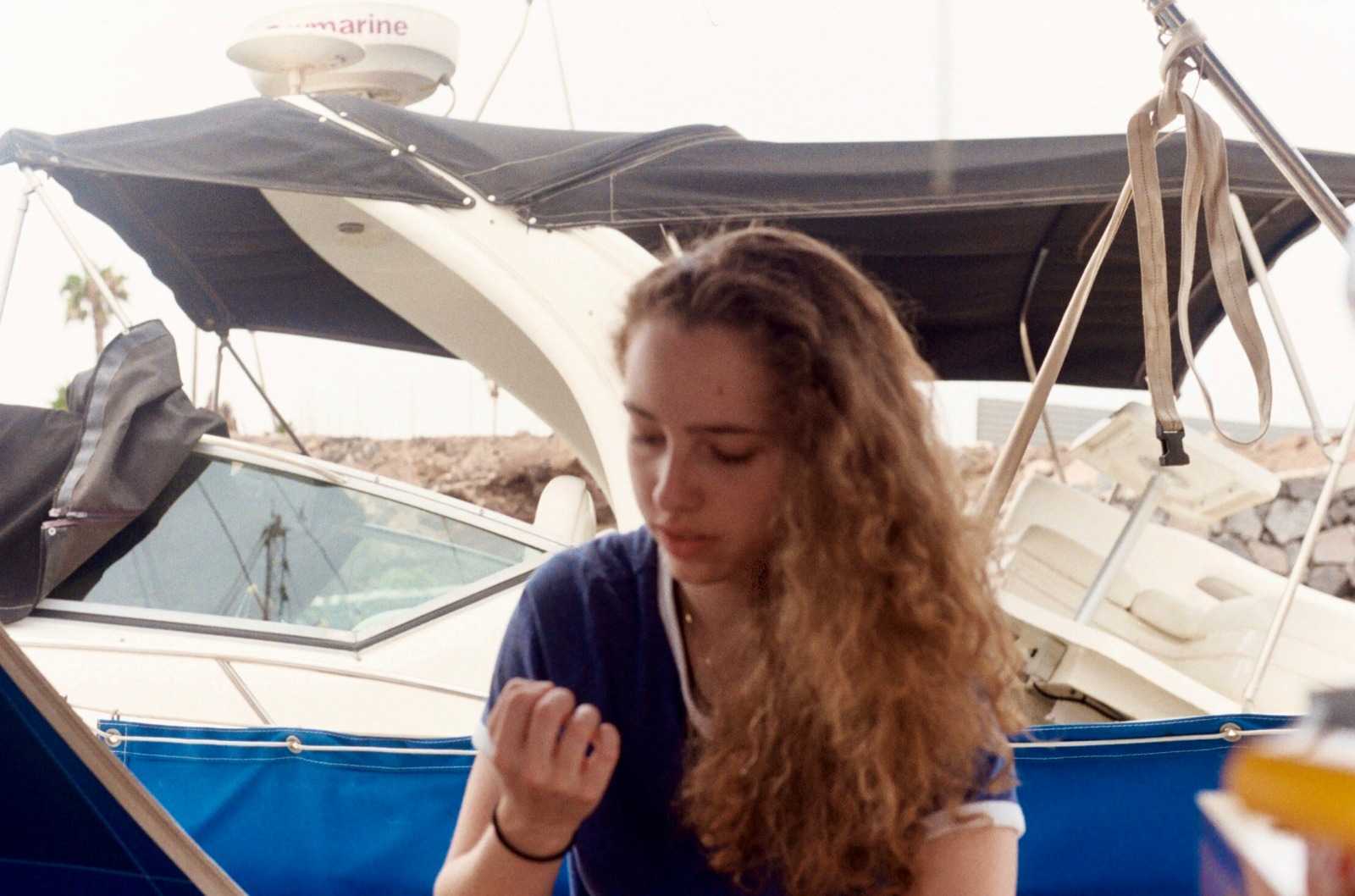
Lily Magnus
(she/her)
Member
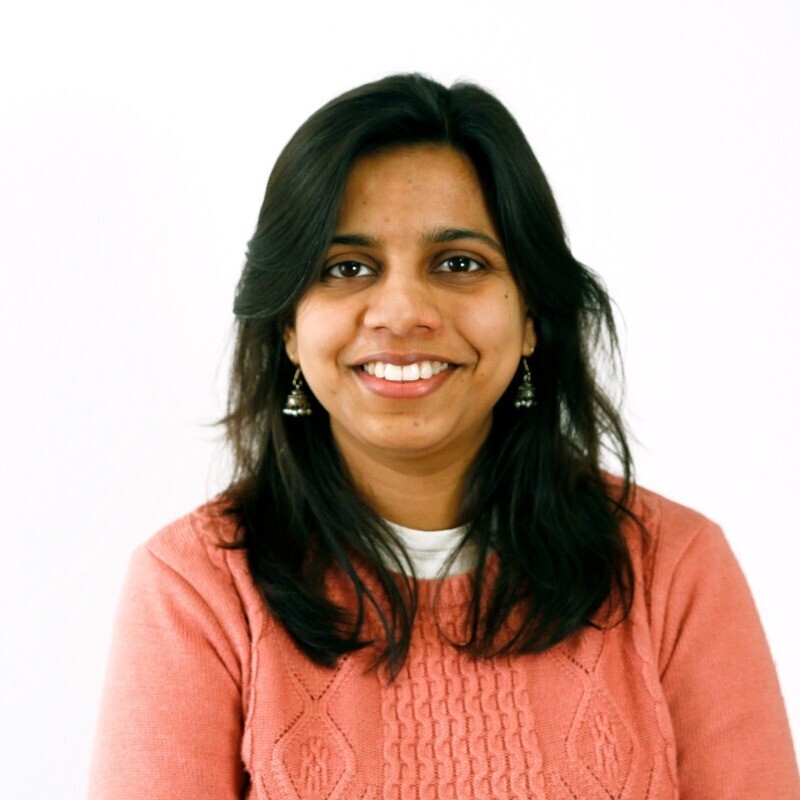
Dr. Vasundhara Shaw
(she/her)
Member
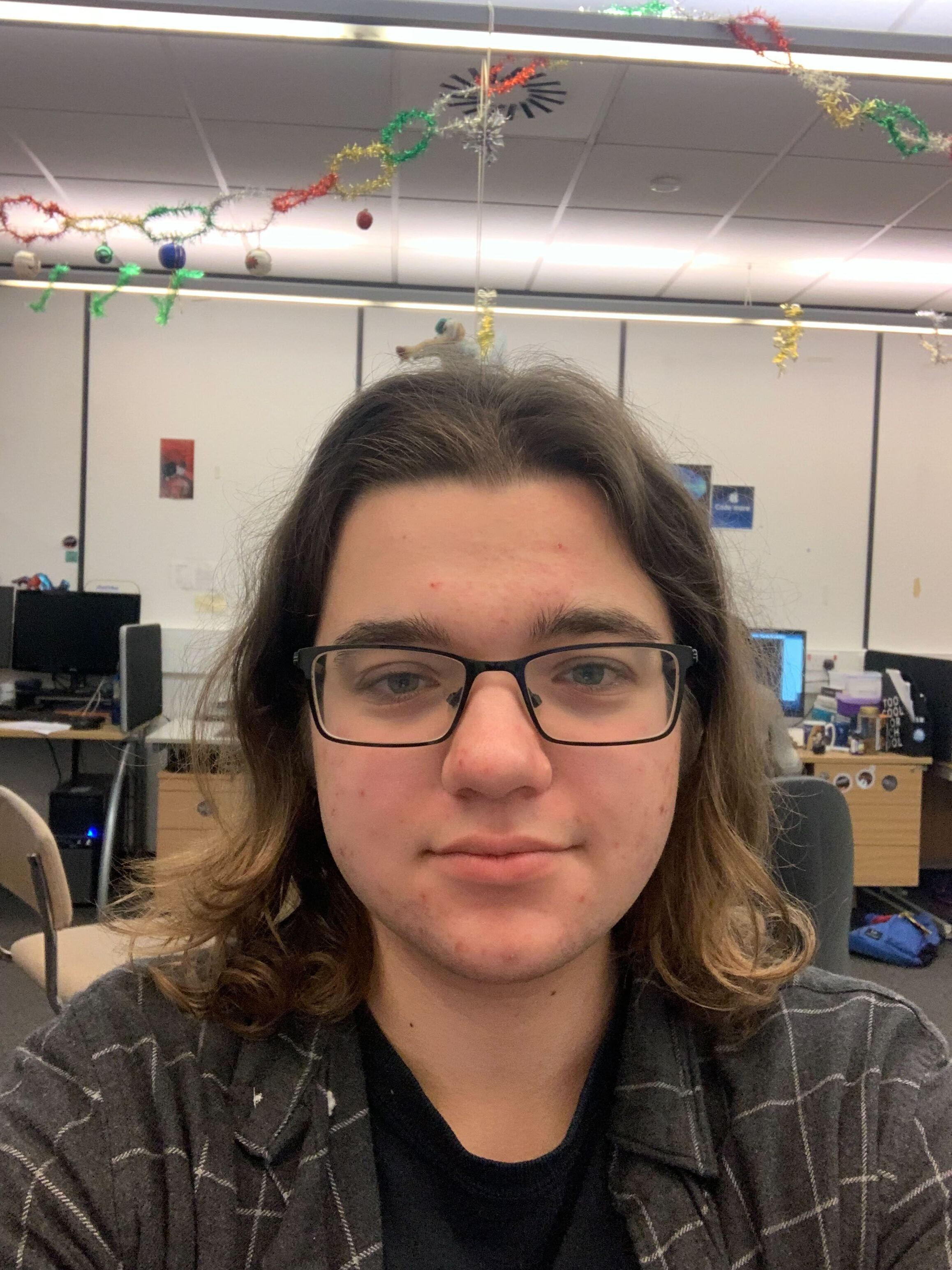
Tobias Russell
(he/him)
Member
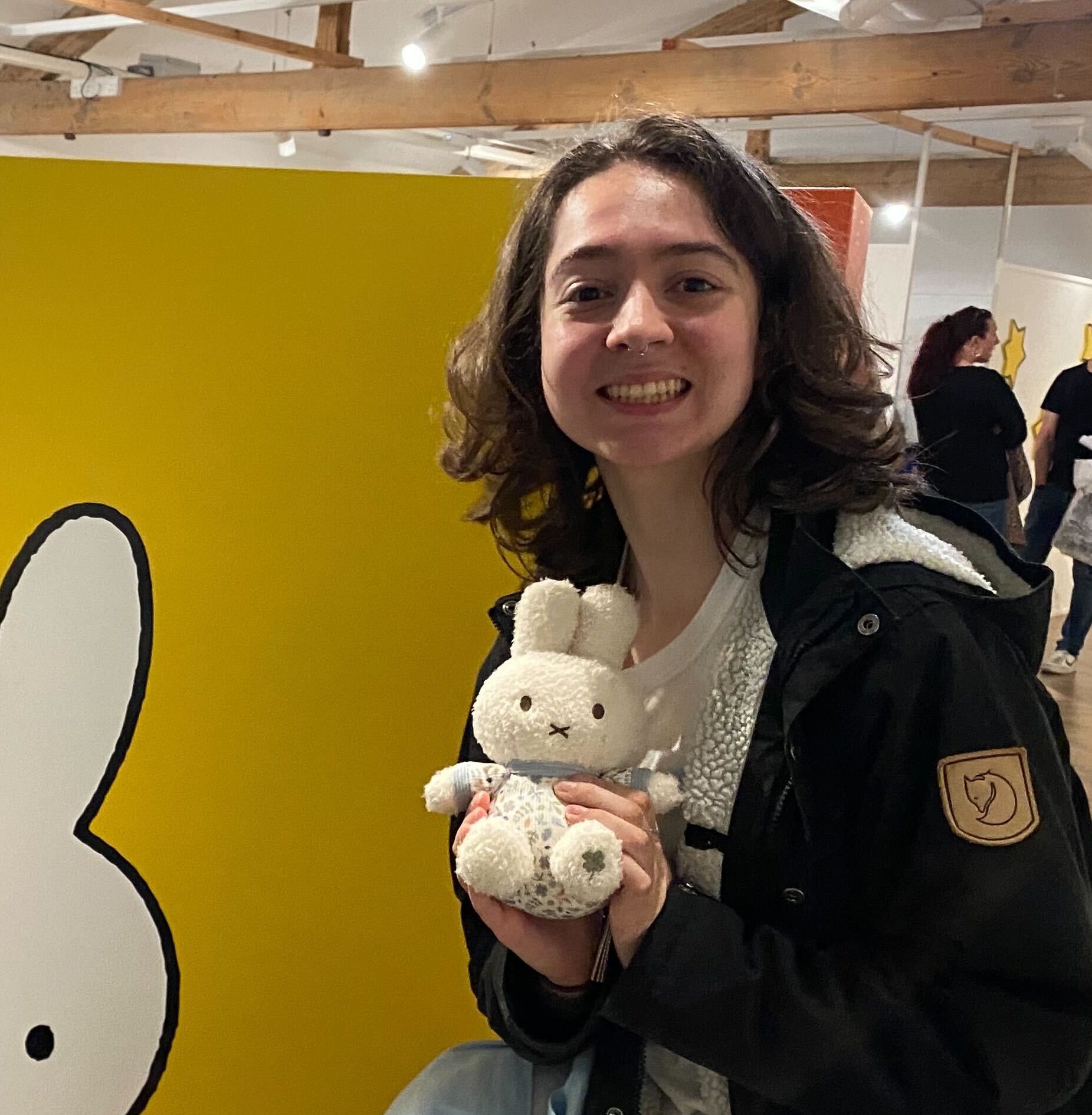
Jamie Incley
(they/he)
Member
Useful Resources
For more information on Equality, Diversity, and Inclusivity, visit the following resources:
- University of Manchester's EDI calender for the year 2025
- Equality versus Equity: What's the difference as we #EmbraceEquity for IWD 2023 and beyond?
- Resources on supporting transgender individuals in Academia:
- LGBTQ+ Inclusivity in Physics and Astronomy: A best practices guide
- Being a transgender in STEM by The Royal Society
- Transgender Physicists Face Fresh Challenges by Sophia Chen
- Bullying and Harassment in Astronomy and Geophysics - report and recommendations
- ‘Data Lunch’
- ‘Science Weekly’ podcast interview with Keon West
- Our code of Conduct: Code of Conduct
Event Archive
2025
• Race and Ethnicity at UoM
Date and Time: 11:00 - 12:00, Thursday, 1 May 2025
Host: Alec Csukai, PhD student, Jodrell Bank of Astrophysics, University of Manchester
Description: In this session, we will listen to a section of the ‘Data Lunch’ organised by the University for Black History Month 2023, wherein data regarding race and ethnicity at UoM are presented and reviewed. We will examine our expectations and our reactions to these data. We will also listen to a section of the ‘Science Weekly’ podcast interview with Keon West, who discusses the scientific examination of ways of tackling racism and discrimination, particularly in the workplace.
• Invisible Diversity Dimensions
Date and Time: 11:00 - 12:00, Thursday, 3 April 2025
Speaker: Louise Z. Carvalho, Legal Adviser & Diversity & Inclusion Programme Leader, CERN, Geneva, Switzerland
Description:
As an International Organization, publicly funded, CERN's personnel must reflect the diversity of our Member and Associate Member States. We record and report on nationality, age, and gender. In this context, CERN's 25 by ’25 aspirational target is yielding better than expected results.
But what of the invisible differences we do not record? Our neuro, socio-economic, religious, (dis)ability, sexuality, mental health, and linguistic diversity? Acknowledging our collective invisible characteristics may be key to nurturing an inclusive and collaborative working environment.
CERN's Diversity & Inclusion Programme Leader invites the audience to participate in an interactive and confidential Invisible Dimensions Poll. Bring your mobile phone and some curiosity; you'll need both.
• Lived experiences of disability
Date and Time: 11:00 - 12:00, Thursday, 6 March 2025
Speaker: Laura Howard, The University of Manchester
Description: This session offers an insight into the everyday realities of disability, focusing particularly on managing a disability in an academic context. The aim of the session is to allow you to understand the reality of living with a disability at UoM, to offer advice and guidance on how to support your disabled staff/PGRs, and to allow you to ask any questions free from judgement. The session will focus on the five main barriers disabled PGRs reported facing at UoM, namely Abuse & Harassment, Bureaucracy & Admin, Supervisor Relationships, Exclusion from the PGR community, and DASS Support and Building Access. It is hoped that sharing these experiences will help participants support disabled academics as well as foregrounding the obstacles that persist.
• Carers in STEMM: Like Butter Spread Too Thin On Toast
Date and Time: 11:00 - 12:00, Thursday, 6 February 2025
Speaker: Laura Wolz, Presidential Fellow at Jodrell Bank Center for Astrophysics, The University of Manchester
Description:
We are three scientists (Dr Laura Wolz, Dr Laura Pallett and Professor Laura Carter), all called Laura, who also happen to be mothers. Based at University College London, the University of Manchester, and the University of Leeds we run three independent research programmes as UKRI Future Leaders Fellows.
We have joined together as co-founders of ‘Carers in STEMM’ to champion equitable, accessible support for those navigating the balance between caregiving and careers. We define carers as parents but also all other types of caring. There is an urgent need to accelerate change to deliver initiatives that genuinely support carers, without adding to an already overworked community. We believe that opportunities for support need to be Flexible, Adaptable, Comprehensive and Transparent and discuss this in our Nature Careers Article 'Researcher parents are paying a high price for conference travel — here’s how to fix it'.
In this seminar we will discuss our recommendations from our article to better support academics balancing travel and caring responsibilities and share preliminary findings from our sector wide survey which has been carried out to capture the real-world experiences of UK academics who balance careers in STEMM with caregiving responsibilities. The data collected will serve as a catalyst for change, laying the groundwork for better, more inclusive support systems in academia.
More information can be found on our website: https://carersinstemm.co.uk/
2024
• Supporting transgender individuals in Academia
Date and Time: 11:00 - 12:00, Thursday, 5 December 2024
Speaker: Tobias Russell, PhD student, Jodrell Bank Centre for Astrophysics, University of Manchester
Description: This discussion covers the challenges transgender individuals face in academia, particularly in physics, where gender imbalances and other systemic inequities still persist. This talk reflects on my experiences as a student and early-career researcher navigating social and medical transitioning in academia. Key topics include the intersection of LGBTQ+ issues with gender disparities, the importance of visibility and safety in STEM, and strategies for supporting transgender individuals. We will cover recommendations for fostering inclusivity, including respectful practices, allyship, and valuing advocacy in professional advancement. We aim to discuss advancing equity and inclusion in academic spaces.
• Discussing UoM podcast ‘Being a disabled PGR'
Date and Time: 11:00 - 12:00, Thursday, 7 November 2024
Host: Lily Magnus, PhD student, Jodrell Bank Centre for Astrophysics, University of Manchester
Description: In this discussion session we will listen to the UoM “Let’s talk Disability” podcast episode in parts and discuss along the way. The episode features a conversation between Professor Jackie Carter, Professor Colette Fagan (Vice-President for Research), and Laura Howard (PGR). In the episode they discuss the positive and challenging experiences Laura has faced as a disabled PGR at the University.
• Challenging barriers to science by promoting an empathetic and inclusive environment
Date and Time: 14:00 - 15:00, Wednesday, 2 October 2024
Speaker: Julia Riley, Jodrell Bank Centre for Engagement
Description: My role at Jodrell Bank Centre for Engagement is Head of Education and Interpretation; I’ve been working here since 2009 and have been part of the transformational journey of this public part of the Jodrell Bank site, to open it up to more people and a wider group of people to engage, enjoy and hopefully to inspire! Accessibility and inclusion is central to our work at JBCE, encapsulated in this line within our mission: “Challenging barriers to science by promoting an empathetic and inclusive environment.”
JBCE is a place for learning but is also essentially a visitor attraction, and with that comes a host of opportunities for providing different ways of engaging with science not available through the traditional classroom. During the session I will share some experiences of projects and strands of work we have undertaken over the years as we continue to work towards our mission.
• End of year EquiTea discussion
Date and Time: 11:00-12:00, Thursday, 6th June
Host: Lily Magnus, PhD student, University of Manchester
Description: Throughout the year we have had to finish the EquiTea sessions before the discussions have come to a close – we have therefore dedicated the final EquiTea of the year to revisiting some of the topics and re-open discussions. The session is led by Lily who will give a recap of some of the talks (Emma Nichols; outreach at UoM, Tim O’Brien; Sonification, and Sheila Kanani; EDI at RAS) and will lead the open discussion – not necessarily limited to these three talks. All inputs are welcome.
• 10 years of EDI at the RAS
Date and Time: 11:00-12:00, Thursday, 2nd May
Speaker: Sheila Kanani MBE, Royal Astronomical Society
Description: In this discussion, EDI officer at the RAS Sheila Kanani, highlights some of the EDI work completed or ongoing since she started her role in 2014.
• Sounds from space?
Date and Time: 11:00-12:00, Thursday, 4th April
Speaker: Prof. Tim O'Brien, University of Manchester
Abstract: We are used to presenting our data visually, but a graph is just a mechanism for getting data into our brains where we can think about what it means. Vision is only one sense and there’s no reason why we can’t exploit others. Touch in the form of tactile images is one approach, but sonification - the process of turning data into sound - is another. The sounds of pulsars is a classic example. Sonification can be useful for blind or partially sighted people, but also helps engage wider groups who may not be familiar with - or be actively turned off by - graphical approaches. In this talk, I will discuss (and demonstrate) a range of sonification projects which I’ve worked on over the years.
• Attendance is Not Enough
Date and Time: 11:00-12:00, Thursday, 7th March 2024
Abstract: Promoting equity, diversity, and inclusion (EDI) is crucial not only for cultivating a diverse STEM workforce with varied skills and expertise but also for empowering individuals to recognise their potential in STEM fields, free from biased messaging and experiences. Despite the increasing prevalence of EDI initiatives and widening participation efforts, the assessment of their impact often does not reflect implementation. Current evaluations often focus solely on demographic reach without delving into the actual experiences of individuals. Rather than limiting impact reports to numerical data and diversity metrics, it is important we move towards measures that effectively capture and demonstrate the depth of meaningful and inclusive experiences across diverse audiences. Adhering to the principle of "do no harm", this shift requires a nuanced understanding of the experiences diverse groups have during engagement, outreach, and educational initiatives. Mere attendance should not be assumed as indicative of a positive experience. This discussion emphasises the significance of promoting EDI in STEM engagement, defining "good EDI practice," providing evidence of EDI implementation, and proposing meaningful metrics for assessing impact. The focus is on moving beyond quantitative indicators to truly understand and enhance the quality of experiences within diverse communities engaged in STEM activities.
2023
• Outreach and Widening Participation in the Faculty
Date and Time:11:00-12:00, Thursday, 7th December 2023
Speaker: Emma Nichols
Abstract: For the December EquiTea discussion, Emma Nichols had kindly agreed to speak to us about her work as the outreach manager for the Faculty of Science and Engineering. She will talk about some of the outreach and widening participation work that is done within Physics and beyond.
• Equity for Women in Science (Recorded Fred Jevons Lecture)
Date and Time: Thursday, 2nd November 2023
Host:Rebecca Bowler
Abstract:We will watch the recorded 2023 Fred Jevons lecture by Dr Cassidy Sugimoto (40 mins approx) followed by an informal discussion (20 mins approx). Video link
• ASTROMOVES
Date and Time:Thursday, 7th September 2023
Speaker:Jarita Holbrook
Abstract:A screening of “ASTROMOVES: The Emotional Cost of a Career in Astrophysics” (35 minutes and 31 seconds). There are four section of the film presenting discussion of the following emotional topics: 1. Precarity – how does it feel to have to move from postdoc to postdoc for up to 10 years before getting a permanent position? 2. Discrimination – how does it feel to be discriminated against and what to do when witnessing discrimination. 3. Emotions – what are the emotions that are experienced while chasing that elusive permanent position? 4. Impostor Syndrome & Belonging – Both male and female astrophysicists experience and discuss impostor syndrome. This ASTROMOVES film encompasses some of the more difficult aspects of navigating astrophysics careers.
• How to be an Active Bystander
Date and Time:Wednesday, 26th April 2023
Speaker:Faith Hawthorn
Abstract:This talk was originally given as part of the Warwick Astronomy + Astrophysics Equitea seminar series in March 2022. I'll be presenting content from Warwick's course on 'How to be an Active Bystander', which includes some of the theory behind what it means to be an 'active/passive bystander', reasons to intervene in a situation, the pyramid of violence and understanding its effects, and the stages of a successful intervention, with opportunities for audience interaction and discussion throughout. Please note that this presentation contains discussion of topics that may be distressing, including sexual and verbal harassment and violence.
• Supporting Less Advantaged Students to Access University with The Brilliant Club
Date and Time:Thursday, 2nd February 2023
Speaker:Kammy Bogue
Abstract:The Brilliant Club is an award-winning university access charity founded in 2011 to support students who are less advantaged to access the most competitive universities, and to succeed when they get there. They recruit, train and place PhD researchers in schools across the UK to deliver university-style learning, both on pre-written courses and indeed on their own research. In this talk, I'll be speaking about my own experience as a PhD Tutor for The Scholars Programme, one the of the initiatives run by The Brilliant Club, as well as the charity as a whole. I'll also discuss the impact of this work, as well as ways you can get involved yourself for those that are interested!
2022
• Inclusive Conferencing
Date and Time:Thursday, 1st December 2022
Speaker:Emily Henderson and James Burford
Abstract:This session is an interactive session on inclusive conferencing, which is aimed at researchers at any career stage who would like to think more about inclusivity in academia. Conferences are vital spaces to consider inclusivity due to the nature of conferences as career-building activities – and therefore the potential for conference inequalities to impact upon wider inequalities in the academic profession. The session covers the following topics: (i) Why inclusive conferencing? (ii) Being an inclusive conference organiser, (iii) Being an inclusive conference attendee, (iv) Further directions for thinking about inclusive conferencing. The aims of the session are to introduce session attendees to the different aspects of and rationale for inclusive conferencing, and to provide space for discussion about the challenges of and mechanisms for embedding inclusive conferencing in our everyday practices.
• Mary Somerville and the Mechanism of the Heavens
Date and Time:Thursday, 3rd November 2022
Speaker:Karen Masters
Abstract:Mary Somerville was a Scottish mathematical astronomer and science writer who was roughly contemporary with Jane Austen. At a time when even upper class women were often never formally schooled, and certainly not in mathematics or astronomy she first discovered algebra when reading a women's fashion magazine at a society tea party, and was allowed to embark on a study of geometry only to improve her painting. She went on to become one of the UK's most famous scientists (in fact the word was coined to describe her, since she clearly wasn't a "man of science"), and most famous published an English translation of LaPlace's "Mechanique Celeste” (the Mechanism of the Heavens”) which became the standard University textbook for Calculus, as well as writing a book on "The Connection of the Physical Sciences" which is credited for setting out the current array science topics we call physics. I was shocked to discover Mary Somerville only a few years ago, and had great fun learning more about her as I worked on a book Chapter about her life: “Mary Somerville and the Mechanisms of the Heavens”, which is part of “More Passion for Science: Journeys into the Unknown” published by the Ada Lovelace Day group in support of their work to raise the profile of women in STEM.
• Representation in Physics Higher Education
Date and Time:Thursday, 13th October 2022
Speaker:Stephen Wilkins
• It’s hip to be square: The highs and lows of being an autistic academic
Date and Time:Monday, 1st August 2022
Speaker:Katherine (Katie) Twomey
Abstract:Being autistic isn’t always easy, but neither is it always awful. There are relatively small changes that institutions can make to make the autistic life easier and allow us to live happily in the spaces we all share. In this talk I’ll give my own perspective on what it’s like to be a late-diagnosed autistic woman and some suggestions that I hope will give insight into the lives of autistic students and colleagues.
• The Tactile Universe: Accessible astrophysics public engagement with the vision impaired community.
Date and Time:Thursday, 5th May 2022
Speaker:Nicolas Bonne
Abstract:Astronomy is a topic that engages and inspires a wide range of audiences around the world, but blind and vision impaired people can often find it difficult to engage with the subject due to its very visual nature. The Tactile Universe is an award winning public engagement project founded in 2016 and based at the University of Portsmouth which is opening up current topics in astrophysics research to blind and vision impaired people through accessible resources. We will discuss the project’s main resource (3D printable tactile images of galaxies), what the project is doing to inspire young people with vision impairments to engage with topics in STEM, as well as outlining how the project has expanded across the UK and internationally through resource sharing and presenter training workshops. Lastly, we’ll share how involving the vision impaired community in the development and delivery of the Tactile Universe has shaped the project and its resources in unique ways, share the lessons the project team have learnt along the way and discuss the project's future and shifting our focus from galaxies to gravitational waves.
• Discussing the University's Athena Swan Silver award action plan
Date and Time:Thursday, 7th April 2022
Speaker:Amy Suddards
• The culture of astronomy collaboration as a catalyst for sustainable development
Date and Time:Thursday, 3rd March 2022
Speaker:Hannah Dalgleish
Abstract:Astronomy is a deeply cultural science; an evening spent under a dark, starry night sky can evoke feelings of awe, wonder, and of being a global citizen. On the other hand, the pursuit of astronomical knowledge depends on cross-border co-operation – observers need shared infrastructure and intelligence to study the Universe’s greatest mysteries. Not only does this advance science, but also brings significant societal and political benefits: through international collaboration, astronomy can bring governments and nations together to foster trust, peace and prosperity, and to help bridge the North-South divide. In turn, many astronomers themselves are rooted in a culture of openness, devoted to reaching and supporting marginalised communities and narrowing societal gaps. As a result, the efforts of astronomers lends itself to attaining the sustainable development goals.
